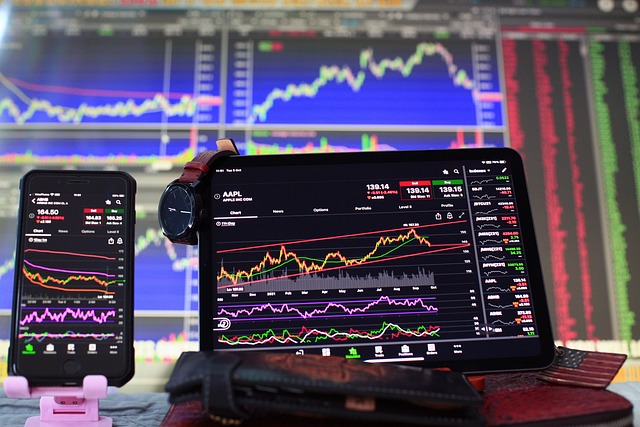Exploring the Comprehensive World of Crypto Trading Tools
In recent years, cryptocurrency trading has grown exponentially, attracting a diverse array of participants ranging from seasoned investors to curious newcomers. This bustling market requires a suite of tools and platforms to navigate successfully. In this article, we will explore various crypto trading tools, their purposes, and how they can enhance your trading experience.

What are Crypto Trading Tools?
Crypto trading tools encompass a variety of resources designed to assist traders in making informed decisions. From charting platforms and news aggregators to trading bots and portfolio trackers, these tools aim to improve trading strategies and facilitate efficient market engagement. While some tools are geared towards analysis, others provide automation, community support, or portfolio management.
Types of Crypto Trading Tools
1. Technical Analysis Tools
One of the backbone strategies of successful trading is technical analysis. By analyzing historical price data, traders can identify potential trends and price movements. Essential tools in this category include:
- Charting Software: Platforms like TradingView and Coinigy allow traders to visualize price movements through advanced charting techniques.
- Indicators and Signals: Tools that provide signals based on statistical algorithms, such as Moving Averages (MA), Relative Strength Index (RSI), and Bollinger Bands, help traders assess market sentiment.
Personal Opinion:
In my experience, charting software can seem overwhelming at first, but investing time to understand these platforms can drastically improve your trading strategy. For beginners, starting with simpler charts before progressing to more complex indicators is crucial.
2. Automated Trading Bots
Another category of trading tools is automated trading bots. These programs execute trades on behalf of traders based on pre-defined criteria. Popular options include:
- 3Commas: Offers a wide range of bots for different trading strategies, from long-term investments to high-frequency trades.
- Cryptohopper: Notable for its user-friendly interface, allowing users to create bots with minimal coding knowledge.
Personal Opinion:
Automated trading has its pros and cons. While it can help you capitalize on market opportunities even when you’re not actively monitoring the market, it is essential to have a solid understanding of the underlying strategy. Blindly following bots without understanding their rationale can be a recipe for disappointment.
3. Portfolio Management Tools
Keeping track of your portfolio's performance is vital for any trader. Portfolio management tools help users track the value of their holdings, calculate gains or losses, and provide insights into asset allocation. Some popular options include:
- CoinStats: A comprehensive app that allows users to connect their wallets and exchanges to provide real-time updates on their portfolio.
- Blockfolio: Now known as FTX App, it focuses heavily on providing detailed analytics and news relevant to your holdings.
Personal Opinion:
Effective portfolio management is often overlooked by new traders. With the volatile nature of cryptocurrencies, having a clear overview of your assets and their performance is crucial for making timely decisions. I highly recommend using these tools to keep everything organized.
4. News Aggregators
Staying updated with the latest news and trends is critical in the fast-paced world of crypto trading. News aggregators compile articles, press releases, and expert opinions, keeping traders informed. Notable aggregators include:
- CoinDesk: A leading source of news, analysis, and information on the cryptocurrency market.
- CryptoPanic: An aggregator that allows users to see market sentiment from a variety of sources, which can inform trading strategies.
Personal Opinion:
News can heavily influence market movements, especially in the crypto sector. Relying solely on social media for news can lead to misinformation. I find that reputable aggregators can serve as valuable resources for accurate and timely information.
5. Community and Social Trading Platforms
Engaging with other traders can provide invaluable insights and foster collaborative strategies. Community-driven platforms and social trading sites allow traders to share tips, strategies, and market analyses. Examples include:
- eToro: A renowned social trading platform that allows users to follow and copy the trading strategies of successful investors.
- TradingView: While primarily a charting tool, its community features allow traders to share ideas and analysis.
Personal Opinion:
The power of community cannot be underestimated in trading. Engaging with fellow traders can expand your perspective and introduce you to innovative trading ideas. However, it’s crucial to maintain your strategy and filter advice through your own understanding.
Choosing the Right Tools for Your Trading Style
Every trader is unique, and the tools that suit one individual may not be appropriate for another. Factors to consider when choosing tools include:
- Trading Experience: Beginners may benefit from user-friendly tools, while experienced traders may prefer advanced analytics and automation.
- Investment Goals: Are you looking for short-term gains or long-term investments? Your trading strategy will dictate the tools you use.
- Budget: Some tools have associated costs, so it’s essential to evaluate your financial plan before diving in.
Personal Opinion:
I believe the best approach is to start with a mix of free and premium tools for a trial period. This way, you can determine what features you genuinely need and what you can live without. Experimentation is key to finding your perfect toolkit.
Conclusion: Embracing Technology in Crypto Trading
The rise of cryptocurrency trading has been paralleled by the development of an extensive ecosystem of tools designed to enhance trading experiences. Whether you focus on technical analysis, portfolio management, or community-driven insights, leveraging the right tools can significantly bolster your strategies and outcomes. However, it is vital to couple these tools with a solid understanding of the market. As with any investment, continuous learning, adaptability, and a disciplined approach will serve you best in the ever-evolving crypto landscape.